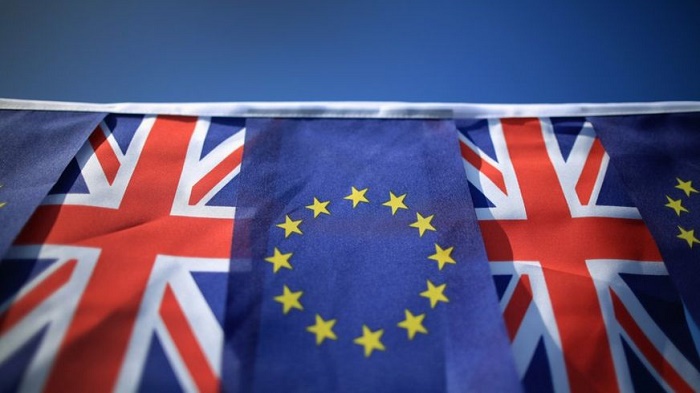With growing fears of “no-deal” chaos after the United Kingdom finally leaves the EU’s orbit on Dec. 31, talks will resume in Brussels before British Prime Minister Boris Johnson and European Commission President Ursula von der Leyen review the situation on Monday evening.
Irish Prime Minister Micheal Martin said on Sunday the chances of a deal were 50-50. Investment bank JPMorgan said odds of a no-trade deal exit had risen to one third from 20%.
The British pound tumbled on concerns that there would be no agreement covering annual trade worth nearly $1 trillion.
EU chief negotiator Michel Barnier was “rather downbeat as to the prospects of agreement” when he spoke to national envoys over orange juice and pastries in Brussels on Monday morning, according to one diplomat who took part in the meeting.
“EU-UK negotiations have entered the endgame, time is running out quickly,” another EU diplomat said. “It is for the UK to chose between... a positive outcome or a no deal outcome.”
In London, a lawmaker in Johnson’s governing Conservative Party said France would have to make concessions on fishing, and the EU would have to drop what he said were new demands on fair competition known as the level playing field.
Irish Foreign Minister Simon Coveney told RTE News: “I’d like to be giving more positive news but at the moment these negotiations seem stalled, and the barriers to progress are still very much in place.”
Britain, which joined the EU in 1973, formally left the bloc on Jan. 31 but has been in a transition period since then under which rules on trade, travel and business remain unchanged.
For weeks, the two sides have been haggling - as yet without a result - over fishing rights in British waters, ensuring fair competition for companies and ways to solve future disputes.
The Sun newspaper reported that Johnson, a figurehead for Britain’s campaign to leave the EU, was ready to pull out of the talks within hours unless the EU changed its demands.
NO DEAL?
Failure to secure a deal would clog borders, upset financial markets and disrupt delicate supply chains across Europe and beyond as the world tries to cope with the vast economic cost of the COVID-19 pandemic.
Sterling fell 1% to 2-1/2 week lows against the dollar to $1.328, a U-turn in market sentiment from Friday when it had risen above $1.35 for the first time this year.
With just days left for a deal to be agreed, EU diplomats said it a decisive moment for both the United Kingdom and the bloc which built the ruined nations of Europe into a global power after the devastation of World War Two.
In a move that could further undermine the talks, the British government will press ahead with draft laws this week that would breach London’s earlier divorce treaty with the bloc.
Junior Foreign Office Minister James Cleverly said on Monday the clauses that breach the treaty would be re-inserted.
Reuters
More about:
















































